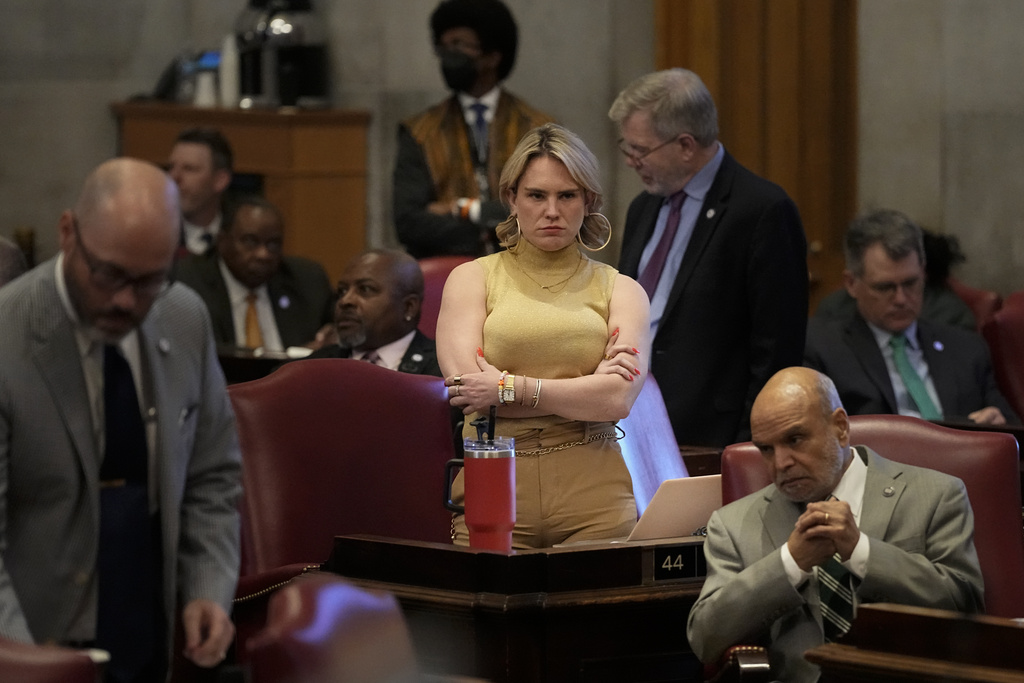Tennessee had a law in place that prohibited most abortions if and when the U.S. Supreme Court overturned Roe v. Wade (1973), which, citing the right to privacy, had permitted abortions in most circumstances. The Supreme Court overturned this precedent in Dobbs v. Jackson Women’s Health Organization (2022). In 2024, the Tennessee legislature further adopted a law making it a criminal misdemeanor to recruit pregnant unemancipated minors to get abortions in other states, even where such abortions were legal if they would be illegal within Tennessee.
On September 20, 2024, Judge Aleta A. Trauger, of the U.S. district court of Middle Tennessee issued a temporary injunction against parts of the law (Case No. 3:24-cv-00768).
Judge: Law against recruiting minors for abortion violates First Amendment
On July 18, 2025, Judge Julia Gibbons of the 6th Circuit Court of Appeals, sitting as a district judge for the Middle Tennessee District of Tennessee, permanently enjoined most of the law largely on free speech grounds.
The case was brought by Rachel Welty, a family law attorney and abortion rights advocate, and Aftyn Behn, a licensed social worker who represents District 51 in the Tennessee House of Representatives. The lawsuit was against elected deputy attorneys general in middle Tennessee who would be charged with prosecutions of the new criminal law. Welty and Behn indicated that they planned to continue counseling Tennessee teens about the safety of abortions and the states where they might travel to procure such abortions legally.
Ruling: Information-sharing about abortion is protected speech
Judge Gibbons found that the plaintiffs intended to engage in “public advocacy, information-sharing, and counseling,” all of which “are protected speech” under the First Amendment. She relied in part on the decision in Bigelow v. Virginia (1975), which had protected advertising of abortion services for legal out-of-state services.
Although Tennessee had argued that speech was not protected if it were “integral to criminal conduct,” the judge distinguished speech urging individuals to procure abortions in states like Tennessee where it was illegal from speech providing information about abortion services in states where it was legal: “Tennessee may criminalize speech recruiting a minor to procure an abortion in Tennessee . . . . The state may not, however, criminalize speech recruiting a minor to procure a legal abortion in another Tennessee.”
Although the plaintiffs had argued that the term “recruit” was void for vagueness, the judge believed that it could be understood in context. She also believed that the plaintiffs faced a credible threat that the law would be enforced against them, and that this could lead to a chilling effect on their speech. She attributed the lack of such enforcement largely to the fact that the law was new and its enforcement had been previously enjoined. She also noted that the law had allowed for private parties to bring civil actions against such individuals and that the law allowed for prosecution of individuals who counseled minors about out-of-state abortions even if they did not obtain them. She further denied that the doctrine of state sovereign immunity applied to this case.
Judge: Tennessee abortion law is content-based restriction
Examining the law as applied, Judge Gibbons decided that the law was “an unconstitutional content-based restriction,” which permitted individuals to counsel minors against procuring abortions but did not permit them to counsel them as to where they might get them, even in states where they were legal. To this extent the law was overly broad in its application and could not survive either an as-applied or a facial challenge.
Scope of Ruling and Other Constitutional Issues
Although the Supreme Court had ruled in Trump v. CASA, Inc. (2025) that district courts did not have the authority to issue universal nation-wide injunctions, Judge Gibbons did not think this precedent applied to similar state-wide injunctions.
Individuals seeking to travel from a state that restricts abortions to one that does not might further argue that such state laws attempting to prevent such travel unduly interfere with congressional control over interstate commerce (Bartley, 2025) or with the constitutional right to travel.
John R. Vile is a political science professor and dean of the Honors College at Middle Tennessee State University.

